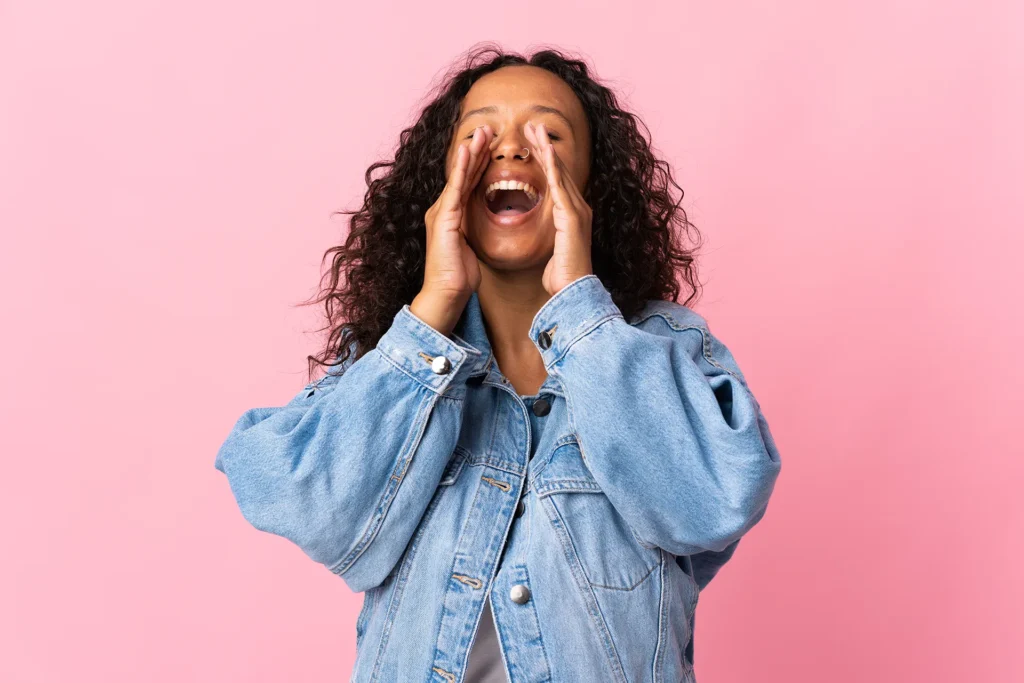A pronoun is how you refer to a person. You will use these all the time without realising. The pronoun often refers to the persons gender ie Him/He or She/Her. Often you will assume someone’s pronoun or gender based on their appearance or their name perhaps.
Not everyone identifies with the binary definitions of gender (male and female) so they may prefer gender-neutral pronouns such as ‘they/them’ or a variation such as ‘he/they’. Someone who is gender neutral or non-binary may feel the sex they were assigned at birth does not ‘fit’ how they feel within themselves or how they view themselves.
Everyone deserves to be treated with dignity and respect and so understanding their pronouns is a simple gesture which has a big impact.
How do I use pronouns?
When you meet new people, whether that be in an education setting, in work or even in a health care setting introduce your self and include your chosen pronoun. By doing this you may make someone feel comfortable to also share their pronouns with you.
For example, my name is Hayley and my pronouns are She/Her. How about you?
By doing this or even adding your pronouns to your email signature you can create an inclusive space where everyone can be their authentic self. We should never assume someone’s pronoun by their appearance or their name.
Asking about a person’s pronouns may initially feel awkward or uncomfortable, but with repetition it will become easier and make others feel safe and seen.
Watch this video below?
What if I make a mistake and mispronouns someone else?
It happens….
Apologise…
Correct yourself ….
Move on….
Do not over apologise or explain the mistake by saying’ oh it’s just so hard…. I don’t get it…. Its all new….’ This only shifts the blame on to the other person and then makes them feel awkward. You wouldn’t want to make anyone feel like a burden because of their identity.
How can I share my pronouns?
Edit your email signature to include your pronouns. This is a great way in an education or work setting to let your class mates or work colleagues how you would like to be referred to.
Ask other people ‘ s pronouns and then share yours too, this will then create a safe space for the other person to share their pronouns.
As names and pronouns can change over time, it is important to Check in from time to time. Just because a person is using the She/her pronouns now doesn’t mean this will always be the case. Your pronoun does not define you for your whole life. It is how you see yourself or feel comfortable at that time of your life.
Include pronouns if you wear a name badge.
How can I be more inclusive?
Start by asking people’s pronouns and use gender inclusive language like folks / people / friends instead of ladies etc.
Access LGTBQ+ community yourself – media, Pride, friends, workshops, seek out people’s lived experience.
If you don’t know or understand something don’t pretend you do, – This is a great invitation to say you don’t know but you would like to learn.
Ask for correction, invite people in to feel safe to correct you if you make a mistake, we all mess up sometimes but the willingness to learn goes a long way.
Young people who identify as LGBT+ are two to three times more at risk of suicidal behaviour according to a study.
Making safe spaces by using someone’s pronouns can save lives and that’s something we can all do, It’s something within our control.
If you would like any information on support groups in Essex, please see some links below:
- The OutHouse: https://theouthouse.org.uk/
- South Essex Homes: https://southessexhomes.co.uk/lgbtq-support/
- transpire: https://www.consortium.lgbt/member-directory/transpire-south-essex-trans-network/
For further information or supports please see below:
- Stonewall https://www.stonewall.org.uk/ – UK charity campaigning for LGBT equality.
- Switchboard LGBT https://switchboard.lgbt/ – Switchboard is the national LGBTQIA+ support line. For anyone, anywhere in the country, at any point in their journey. We can discuss anything related to sexuality and gender identity. Whether it’s sexual health, relationships or just the way you’re feeling. This is your space – to explore, talk and be truly heard.
- GALOP https://galop.org.uk/ – LGBT+ anti-violence charity supporting all LGBT+ people who’ve experienced hate crime, domestic abuse or sexual violence. Their helpline can be reached on 0800 999 5428.
- Gendered Intelligence https://genderedintelligence.co.uk/services
- Trans-led charity that aims to improve the lives of trans and non-binary people in the UK.



